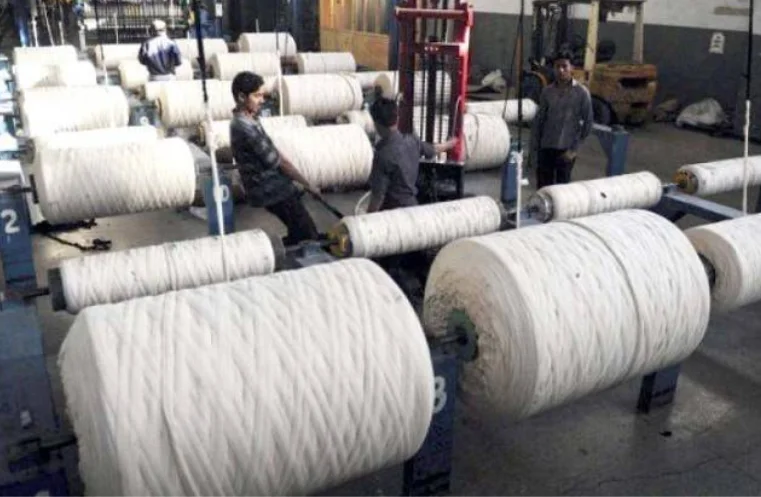Islamabad, Jan 21: In December 2024, Pakistan’s textile sector experienced a noteworthy surge in exports, registering $1.5 billion, a 6% increase from the previous year and a 1% improvement from November 2024.
This growth marks the fifth consecutive month of year-over-year gains, primarily attributed to the substantial enhancements in the value-added textile segments.
Readymade garments led this advance with a significant uptick, reflecting robust global demand and improved manufacturing output.
The value-added textile segment, including readymade garments, knitwear, bedwear, and towels, demonstrated dynamic growth patterns.
Readymade garments, in particular, excelled with a 20% year-over-year and 9% month-over-month increase, totaling $357 million in exports for December alone.
This segment’s performance is a clear indicator of Pakistan’s strengthening position in the global textile market, with total exports reaching $9 billion during the first half of fiscal year 2025, marking a 10% increase from the previous year.
Read More:
CCP Approves 95.59% Share Acquisition of Alfalah Securities by Optimus Capital
In contrast, basic textiles faced challenges, witnessing a 16% decrease year-over-year, with cotton yarn exports falling sharply by 34% year-over-year to $63 million. This decline underscores the volatile nature of raw material-based segments and the shifting focus towards more finished and value-added products.
Economic analysts attribute the resilience of Pakistan’s textile industry to several key factors. Firstly, a higher domestic cotton yield compared to the previous year has provided a much-needed boost to the sector. Additionally, geopolitical shifts, such as the ongoing internal conflicts in Bangladesh and tariffs on Chinese goods, have redirected international orders towards Pakistan, enhancing its export profile.
The All Pakistan Textile Mills Association (APTMA) has been proactive in addressing industry challenges, urging the Federal Board of Revenue (FBR) to implement critical supportive measures.
These include the restoration of zero-rating on inputs, streamlining GST regulations, expediting refund processes, and adopting digital solutions to enhance liquidity and operational efficiency. Such measures are essential for sustaining growth and improving the competitive edge of Pakistan’s textile industry on the global stage.
Looking forward, projections for FY25 are optimistic, with anticipated textile exports potentially reaching $18-19 billion, up from $16.7 billion in FY24. This growth is expected to be driven by continued advancements in the value-added sectors and ongoing governmental support to overcome structural challenges.
As the industry navigates through these dynamic conditions, the focus on diversifying product ranges and enhancing quality standards remains crucial for capitalizing on emerging market opportunities and driving sustainable growth.









